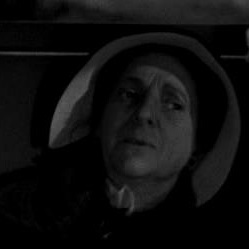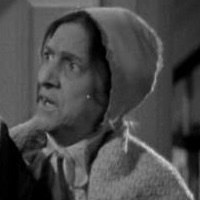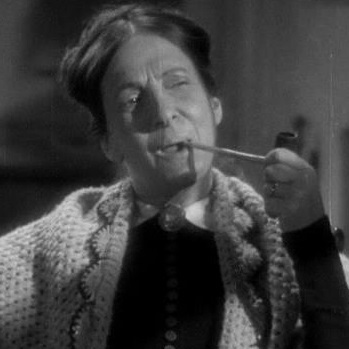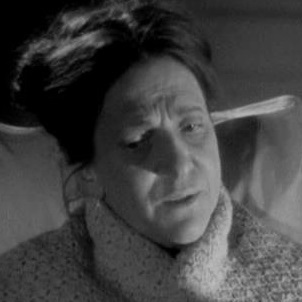Nick-Davis.com: Supporting Actress Calendar by Month












Browse Films by
Title /
Year /
Reviews
Home /
Blog /
E-Mail
|
Nick-Davis.com: Supporting Actress Calendar: January Index
← January 2016 →
1
2
3
4
5
6
7
8
9
10
11
12
13
14
15
16
17
18
19
20
21
22
23
24
25
26
27
28
29
30
31
|
Beulah Bondi, The Gorgeous Hussy
1936: lost to Gale Sondergaard, Anthony Adverse |
|
1 |
★ ★ ★ ★ ★
Beulah Bondi was the first actress listed on the first Best Supporting Actress ballot. We first see her in The Gorgeous Hussy when the camera tilts down from the luggage atop a coach, branded with her husband's name, and finds the couple riding together. Her first line reassures this husband, who happens to be Andrew Jackson, that her mind is tranquil, which it isn't. What a fitting kickoff to this category's longstanding fondness for steadfast spouses, cast in their scripts as indispensable accessories that can be safely stowed away whenever the main action's ready for takeoff. Still, deriding these roles and performances is as easy as over-rewarding them. The same holds for Bondi. Gaunt and tough as an apple core, she was regularly enlisted as a semi-comic rube dispensing rustic wisdom. Like any typecast performer, Bondi had her standbys: bugging her eyes, shucking her consonants, alternating baffled naïveté with flinty insight. Whether or not you recognize these aspects of Rachel Jackson as Bondi's defaults, however, she remains an affecting presence. Tasked by the screenplay to model total, loving communion (thus setting a standard that Joan Crawford's Peggy never attains) and to embody the pain of communal ostracism (which Peggy withstands for different reasons), Bondi's contribution is to suppress any vindictiveness toward her detractors, privileging instead more inward-turning concerns about hindering Andrew. Skeptics disparaged Bondi for pulling faces, but you try crafting fixed expressions that convey active thought, legible even in distant long-shots, without antically indicating or pulling focus. Bondi also avoids recasting Rachel as an underappreciated savant, as the script occasionally does. She telegraphs the character's simplicity without any condescension and only minimal romanticizing. Her line readings suggest emotions that are deep but rarely complicated, which might be why she's so spooked by the tension between adoring Andrew, and knowing her love is nourishing to him, and nonetheless intuiting the trouble she causes him by disappointing cosmopolitans. That said, Bondi's Rachel isn't without guile. "That's what I wanted you to say," Rachel admits to her husband, after a scene Bondi plays with the same voice and countenance as many of her others—revealing that her unsophisticated surface may conceal some layered motivations and carefully-tended hopes. Leave a Comment
|
 |
 |
 |
 |
|













